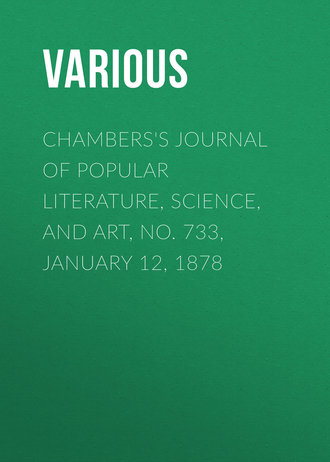Chambers's Journal of Popular Literature, Science, and Art, No. 733, January 12, 1878
 полная версия
полная версияChambers's Journal of Popular Literature, Science, and Art, No. 733, January 12, 1878
Язык: Английский
Год издания: 2017
Добавлена:
Настройки чтения
Размер шрифта
Высота строк
Поля









